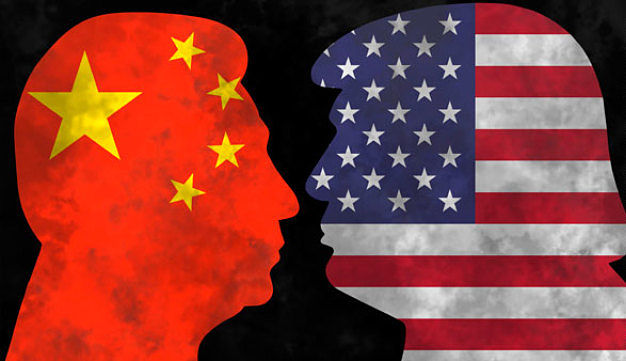US Secretary of State Mike Pompeo’s announcement of a cold war against the communist regime in China has become the main political news of the last few days. Although it is not a sensation in itself, as we wrote in early May when commenting on Pompeo’s previous statement, the speech Pompeo gave on July 24 is sensational because of its content – as a manifesto and program explaining the reasons for this step and the further direction of action. Therefore, we recommend our readers who have the desire and the opportunity to familiarize themselves with the full text (https://warhead.su/2020/07/24/gossekretar-ssha-pompeo-dal-start-novoy-holodnoy-voyne). For others, we will provide a summary of its contents.
First, Pompeo stated that the long-standing policy of appeasing communist China and trying to tame it through mutually beneficial cooperation has utterly failed, as it has only strengthened the communist regime inside the country and its potential and position in the world. He said, “The truth is that our policies – and those of other free countries – revived China’s inefficient economy only to see Beijing bite the hands that fed it in the international community. We opened our arms to Chinese citizens only to see the Chinese Communist Party exploit our free and open society. China sent propagandists to our press conferences, research centers, universities and colleges, and even to parents’ meetings. We gave special economic preferences to the Chinese Communist Party and its ruling regime, only to have the CCP demand silence about its human rights abuses in exchange for Western companies’ access to the Chinese market. Now, people of good will can debate all they want how free countries allowed this to happen all these years. Perhaps we were too naive in assessing the resilience of the communist “virus” in China, too pleased with our victory in the Cold War. We were too timid in our pursuit of capitalist profits and too willing to believe Beijing’s talk of “peaceful development. Whatever the reason, today’s China is becoming more authoritarian within its borders and more aggressive in its hostility to freedom in the rest of the world.”
Second, Pompeo emphasized that modern China is not an ordinary country, but a country seized by a communist regime that has not only enslaved it but also turned it into a springboard for its aggressive policies. He said, “As Ambassador O’Brien explained so well, we must remember that the power of the CCP is a Marxist-Leninist regime. General Secretary Xi Jinping is a true believer in a bankrupt totalitarian ideology. It is this ideology that has defined the CCP’s drive for global hegemony for decades. America can no longer ignore the fundamental political and ideological differences between our countries – just as the Chinese Communist Party has never ignored them. … We must begin by changing the way our people and our partners perceive the Chinese Communist Party. We must tell the truth. We cannot treat this incarnation of China as a normal country like any other. We know that dealing with China is not like dealing with a normal, law-abiding country. Beijing threatens international agreements and treats them as a tool for global domination.
Third, Pompeo pointed out that the enemy is the communist regime itself, which uses China and the Chinese people, not the Chinese people themselves as a country and a nation. On the contrary, he believes that opposing this regime means liberating China and the Chinese people, supporting the healthy forces within them, and helping them return to the community of free nations. He said, “We must also appeal to the Chinese people and expand their opportunities – the dynamic, freedom-loving people who are very different from the Chinese Communist Party….I grew up and served in the army during the Cold War. If there’s one thing I learned then, it’s that communists almost always lie. Their biggest lie is that they speak for 1.4 billion people – who are monitored, repressed, and afraid to speak freely. It’s just the opposite. The CCP fears the honest expression of the views of the Chinese people more than any enemy.”
But what measures did he propose to solve these problems? In fact, there are three main directions. First, to consolidate the opposition of all “free nations” to the expansion of Communist China in all spheres and the maximum weakening of its potential. Second, support for anti-Communist resistance forces among the Chinese (including Taiwan and Hong Kong) and China’s ethnic minorities. Third, to help create divisions within the communist regime, since “its leadership is far from homogeneous.
In principle, the USA once won the Cold War against the USSR by acting in this way. But will it be possible to repeat this success now? Pompeo himself, drawing parallels between the two situations, acknowledges that today’s task is partly more difficult because “unlike the USSR, China is deeply integrated into the global economy.
We would also like to point out another problem – the manifesto and program for the Cold War against Communist China were announced several months before the end of the current U.S. administration. Therefore, it will only be possible to seriously discuss their chances of success, or even implementation, based on the results of the upcoming U.S. presidential elections in November.

